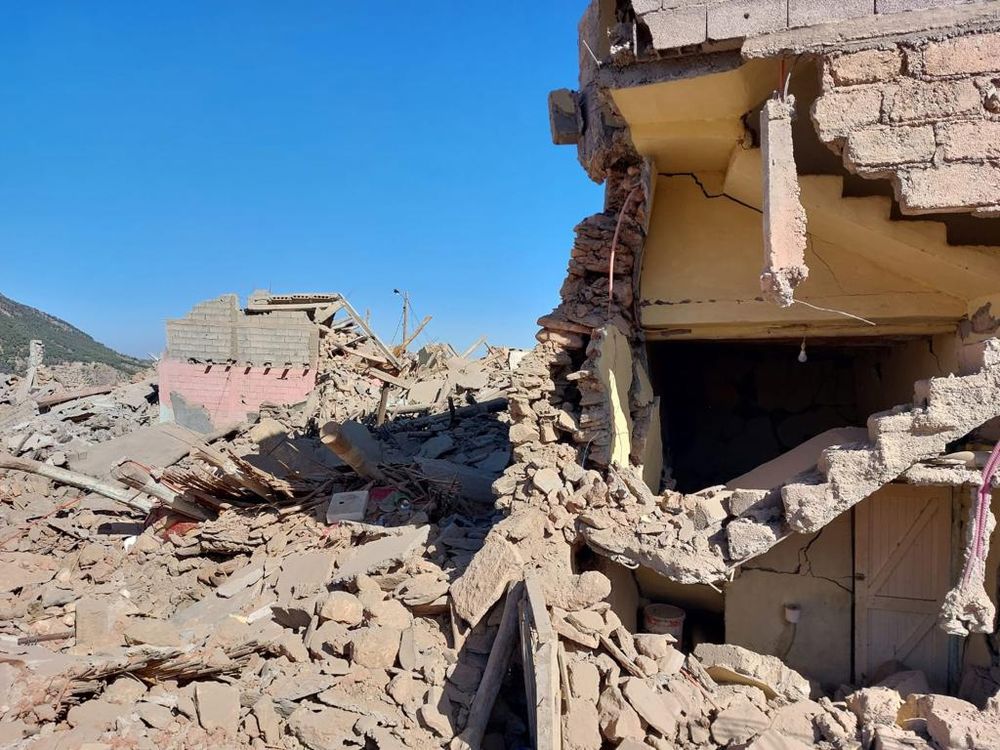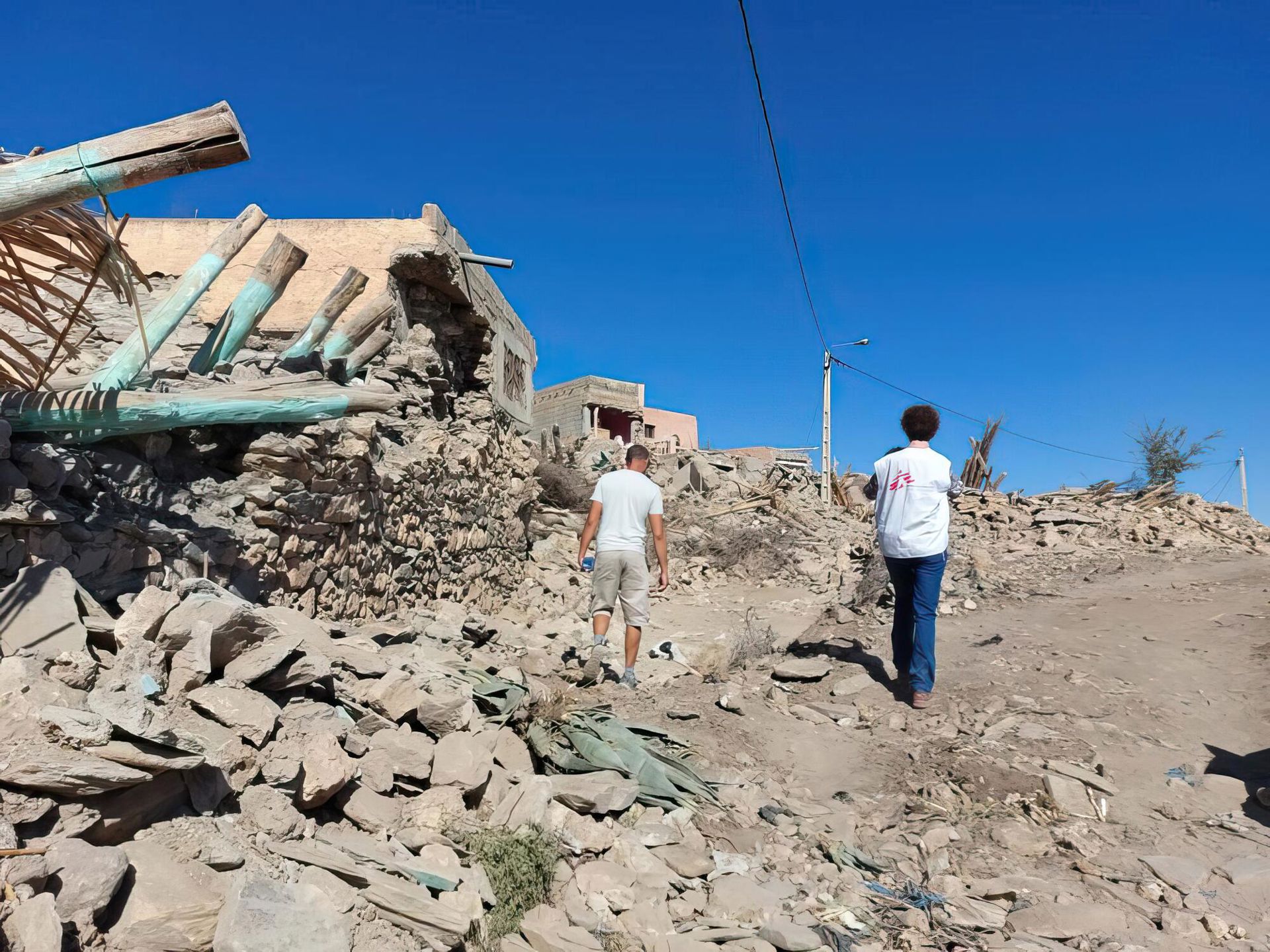John Johnson, MSF emergency coordinator, describes the situation and MSF's ongoing assessment in Marrakesh and in the cities and villages heavily affected by the earthquake, the type of wounded he met and the medical needs on site.
"We settled into Marrakesh and two of us went down to a village called Amizmiz, which is near the epicenter of the earthquake that happened on September 8th. There's a small clinic that's treating patients there. So far they're working outside in a tent because people are afraid to stay inside buildings, that there might be aftershocks and that the building might collapse.
So right now, the patients are outside. There were about three patients that were there overnight and the rest of the severe cases have been referred to a bigger hospital in Marrakesh by ambulance. But in the morning, we were there and then people began to arrive around 8.30 in the morning and the place quickly filled up to about 15 patients, different types of wounded, broken arms, broken legs, cranial trauma, things like that. And the doctors and nurses that were there were treating them the best they could.
Everybody's exhausted, they're working with the supplies that they had available at the time, but it's starting to run low. There's been a pretty incredible mobilization on the part of the Moroccan authorities, you see Red Crescent volunteers, the Moroccan military. There's been a big distribution of mattresses so people can sleep outside, of water and food for people that don't have access. Additionally, there are ambulances moving back and forth between the epicenter and referral hospitals. So people in villages are able to be evacuated quickly to where they can be treated.
We also were able to visit a couple of villages nearby the epicenter. It's really incredible, the devastation that we saw. In the bigger cities, the more modern buildings seem to have held up pretty well, but a lot of the traditional buildings and the smaller villages have just been completely destroyed. There's nothing left but rubble and rocks.
There's an ongoing search for survivors in the rubble. There's quite a few different tractors and forklifts driving around trying to move the rocks away to see if we can find people trapped underneath. The most acute phase is probably over now and it's looking less and less likely that we'll find anyone alive, but they might still be able to find dead bodies to properly bury them.
For Doctors Without Borders, right now, we're making an assessment trying to see where the needs are and how we can help the Moroccan authorities with their response. We're meeting different hospital directors to see if there are needs in terms of human resources or pharmacy supplies or if there's logistical needs that we can support them with and we'll be trying to figure out the best way we can help them in the next few days."



